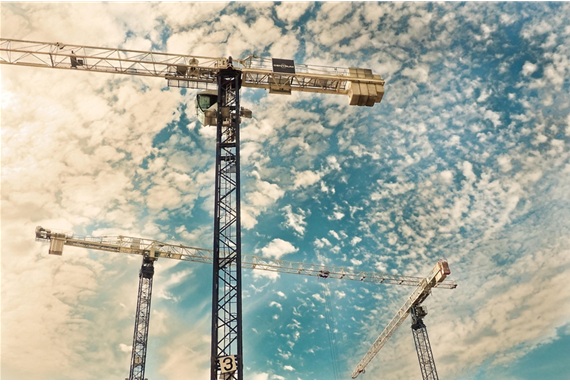Heavy equipment represents a major investment for any business, and ensuring it remains in peak condition is essential for safety, productivity, and profitability. From cranes and excavators to forklifts and loaders, proper care extends machinery lifespan and reduces costly downtime. Partnering with experienced service providers such as Sventek Cranes can make all the difference in keeping your assets performing at their best.
Below, we explore some of the most effective maintenance practices to maximise the longevity and reliability of your heavy machinery.
Prioritise Preventive Maintenance
Preventive maintenance is the cornerstone of long-lasting equipment. Instead of waiting for issues to arise, businesses should implement a proactive maintenance schedule that includes regular inspections, oil changes, and component testing. Preventive maintenance helps identify small problems before they become major breakdowns—reducing downtime and extending the life of vital machinery.
Develop a checklist tailored to each machine’s make and model, including fluid levels, filters, belts, and hoses. Manufacturers’ recommendations are an excellent starting point for building a comprehensive maintenance plan.
Keep Equipment Clean and Lubricated
Dirt, dust, and grime are among the leading causes of equipment wear and tear. Regular cleaning not only keeps machinery looking professional but also prevents blockages, corrosion, and overheating. Pay particular attention to radiators, vents, and moving parts where debris can accumulate.
Lubrication is equally important. Using the right lubricant for each part—whether it’s hydraulic fluid, grease, or engine oil—ensures smooth operation and minimises friction between components. Always follow manufacturer guidelines for lubrication intervals and product types.
Conduct Routine Inspections
Routine inspections are one of the most effective ways to detect potential issues early. Operators should be trained to perform visual checks before and after every shift, including examining tyres or tracks, checking fluid levels, and testing lights and safety systems.
For more detailed inspections, engage qualified technicians who can assess structural integrity, hydraulic systems, and electrical components. A professional inspection program ensures compliance with Australian safety regulations and helps avoid unexpected downtime.
Train and Empower Operators
Operator training plays a crucial role in extending equipment life. Even the most robust machinery can suffer from misuse, improper handling, or overloading. Ensure that every operator is well-trained in both operation and basic maintenance.
Encourage operators to report irregular sounds, leaks, or changes in performance immediately. A culture of accountability and awareness among your team is one of the most powerful tools for maintaining heavy equipment effectively.
Use Genuine Parts and Qualified Technicians
When replacing components or conducting repairs, always use genuine parts from reputable suppliers. Inferior parts may save money upfront but can lead to premature wear or system failure.
Working with trusted industry professionals—such as certified crane and lifting specialists—ensures that maintenance is completed to the highest standard. This not only enhances safety but also protects the long-term value of your equipment investment.
Store Equipment Correctly
When equipment is not in use, proper storage is essential to prevent deterioration. Machines should be parked in sheltered areas away from direct sunlight, rain, and dust. Use protective covers for sensitive components, and if storing equipment for extended periods, run it periodically to prevent system degradation.Battery disconnection, fluid checks, and corrosion prevention treatments are all key steps in long-term storage protocols.
Maintain Accurate Maintenance Records
Comprehensive record-keeping helps track the service history of each machine and provides valuable insights into wear patterns and recurring issues. Digital maintenance management systems make it easier to log inspections, repairs, and part replacements.Accurate records also support compliance with Australian Work Health and Safety (WHS) standards and can improve resale value by demonstrating consistent care and maintenance.
Partner with Industry Experts
Working with an experienced service provider ensures maintenance is handled professionally, efficiently, and in line with safety requirements. Partnering with specialists who understand the complexities of heavy lifting and machinery systems offers peace of mind that your assets are in expert hands.
Maintaining heavy equipment requires diligence, training, and a proactive approach. By implementing regular inspections, keeping machinery clean and lubricated, and working with qualified professionals, you can significantly extend the life of your assets and reduce operational costs.The result? Reliable equipment, fewer breakdowns, and a safer working environment—ensuring your investment continues to deliver value for years to come.






